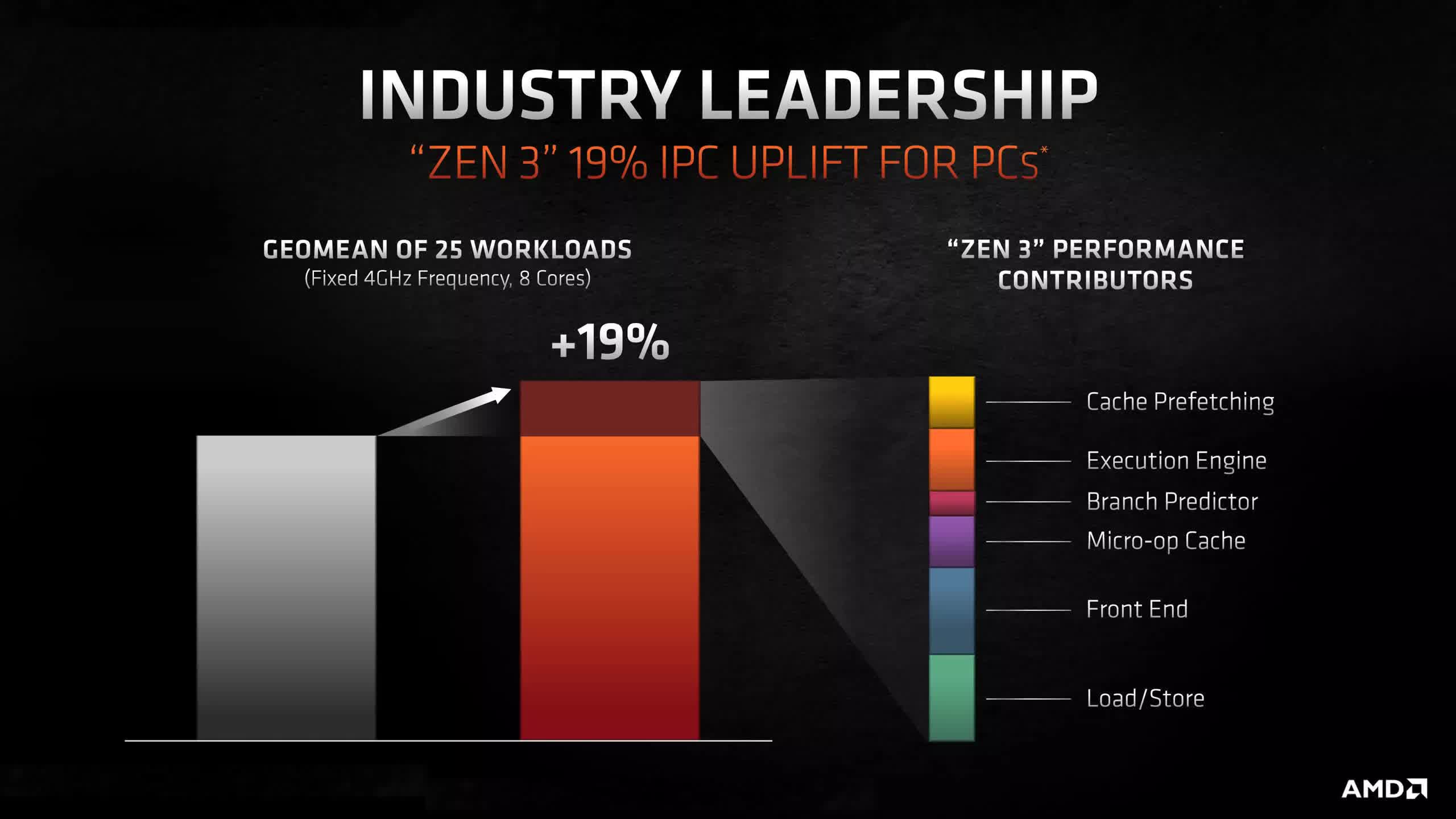Something to look forward to: The Ryzen 5000 series APUs will include Zen 2 parts, but that’s not where the action will be. Judging by the benchmarks we’ve seen so far, the Zen 3-based models will mirror the improvements seen on its desktop counterparts, which is great news for laptop gamers.
Last week, we saw the first glimpse of replacements for AMD’s Ryzen 4000 series mobile APUs, which brought exceptional performance within 15 watt, 25 watt, and 45 watt power envelopes. Look no further than our review of the Ryzen 7 4800H, Ryzen 9 4900HS, and Ryzen 7 4800U CPUs to see that.
Zen 2-based desktop and laptop processors have definitely helped AMD gain significant ground on Intel, eroding its multi-year dominance in the consumer market. So far, we know the Ryzen 5000 series APUs will be a mixture of Zen 3 parts as well as rebadged Zen 2 parts.
The latter are codenamed Lucienne, and will use the same combination of Renoir cores and Vega integrated graphics. The more interesting chips, dubbed Cezanne, are based on Zen 3, but they will also come with Vega integrated graphics, albeit with a slightly higher GPU clock.

Geekbench scores are all we can use to gauge their performance for now, and it seems like the Ryzen 5 5500U and Ryzen 7 5700U won’t be much faster than the Ryzen 4000 models they’ll replace.
However, the story is different when it comes to the Ryzen 7 5800U, an 8-core, 16-thread Cezanne part that gets a 20 percent higher score in the single-core test versus the Ryzen 7 5700U (Lucienne), which means the Zen 3-based APUs could bring the same IPC uplift as the desktop Ryzen 5000 series CPUs brought over Zen 2 parts.
The Ryzen 7 5800U reportedly achieved single-core and multi-core results of 1,421 points and 6,450 points, respectively, while using slower DDR4-2666 RAM that is known to hold Ryzen processors back in various scenarios. The Ryzen 7 4800U can achieve a single-core score of 1,030 points and a multi-core score of 5,845 points, which is in part due to slightly lower clocks.
This should provide a clue as to what performance we can expect from 15-25 watt Ryzen 5000 APUs, and we can only hope that AMD won’t apply the same dual strategy with the 5000H series APUs. The low-voltage parts are expected to launch sometime in the first months of 2021, and that moment can’t come soon enough.
